Cannabidiol, or better known as CBD, is one of the most famous active ingredients in hemp, a plant belonging to the Cannabaceae family, hence the name cannabis. It grows in various parts of the world and has been used by humans for therapeutic and healing purposes for millennia. This particular plant contains over 100 cannabinoids, a group of chemical compounds that also includes CBD, in addition to many other natural compounds.
CBD has achieved considerable global fame thanks to its countless properties, capable of treating ailments such as insomnia, anxiety, loss of appetite, pain, inflammation, and much more. One of its most appreciated aspects is the fact that it is non-psychoactive and, unlike THC, does not cause mental alterations or health side effects.
For these reasons, more and more people are turning to CBD-based products, considering them natural alternatives to traditional medications. The beneficial properties of CBD have in fact piqued the interest of the scientific community, which has increased research, especially since nations have become more tolerant of the cultivation and marketing of cannabis. A growing number of studies are scientifically attesting to CBD’s therapeutic properties in the treatment of a wide variety of conditions, including serious ones.
What is the history of CBD?
The history of CBD begins in 1940, when American chemist Roger Adams isolated cannabidiol (CBD) for the first time. During his research, Adams also isolated another cannabis compound, cannabinol (CBN), and hypothesized the existence of a third compound, which would later prove to be tetrahydrocannabinol (THC), the primary contributor to cannabis’s psychoactive effects.
In 1964, Israeli chemist Raphael Mechoulam made a major discovery by isolating THC and identifying the human endocannabinoid system, a biological system that interacts with compounds found in cannabis, including CBD. This discovery marked a turning point in the scientific understanding of cannabis’s effects on the human body.
In the 1970s and 1980s, numerous studies began to reveal the therapeutic potential of CBD, particularly in the treatment of epileptic seizures and anxiety. Unlike THC, CBD does not cause sedative effects and is recognized for its ability to reduce symptoms without altering mental state.
In 1985, the United Kingdom approved the first cannabis-based medication, Sativex, an oral spray containing cannabis extracts, including CBD and THC, for the treatment of muscle spasticity in patients with multiple sclerosis.
This represented a major step forward in the medical use of cannabis and its components, marking the beginning of a growing interest in the therapeutic potential of CBD.
All forms of CBD on the market
Once we’ve clarified what CBD is, it’s important to understand all the forms it can be found in on the market and where to buy it. CBD is present in a more or less pure form in many products, such as oil, crystals, creams, foods, herbal teas, and supplements.
When CBD is used to create oil, it can take three different forms:
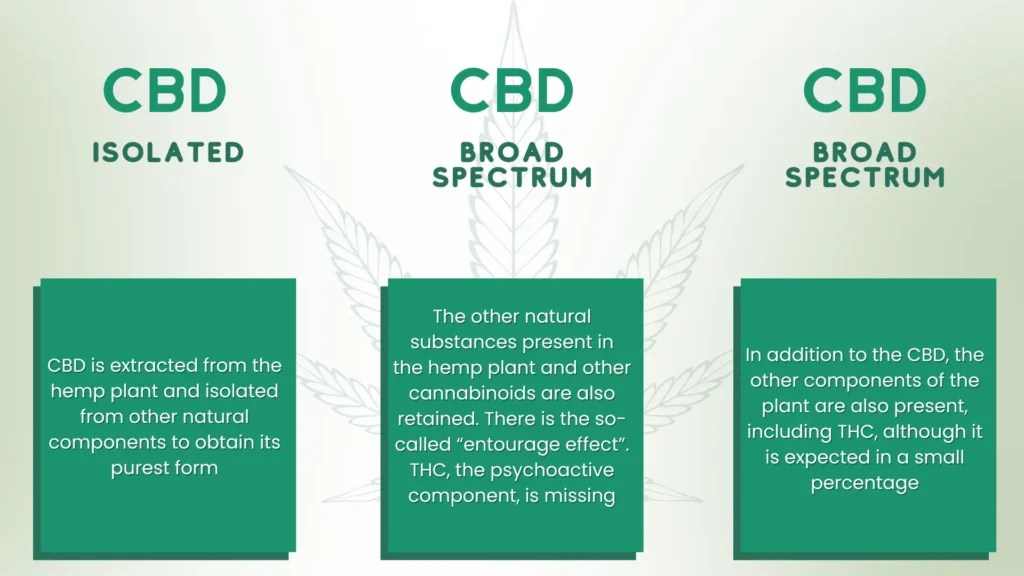
Each product has been designed to satisfy the consumer’s specific tastes, who can find CBD in more or less potent forms based on their needs.
Difference between CBD and THC
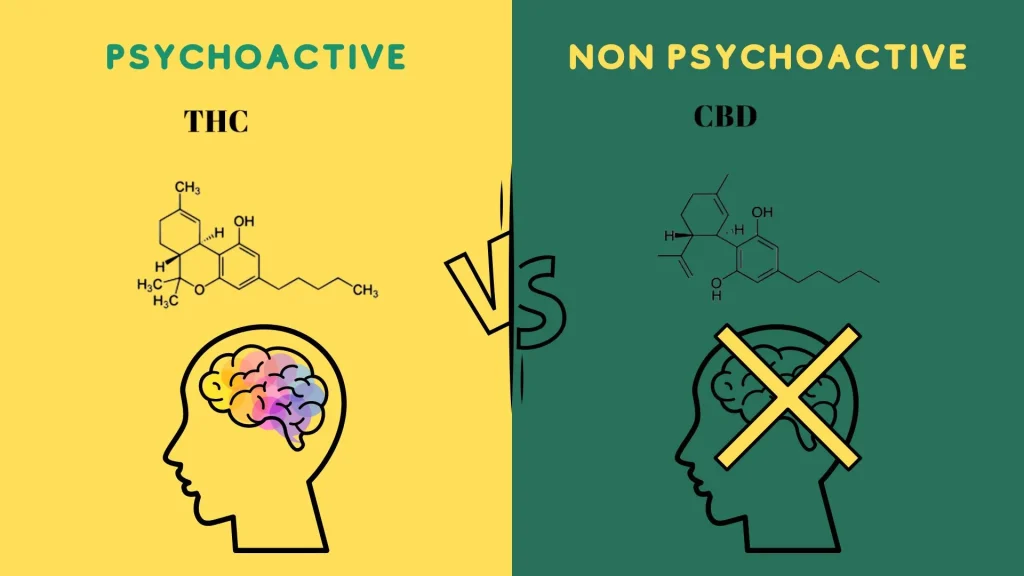
CBD and THC are both cannabinoids found in the cannabis plant.
CBD was first discovered in the 1940s as a chemical compound with properties suitable for the natural treatment of a wide range of conditions.
THC, whose full name is delta-9-tetrahydrocannabinol, was only isolated in the 1960s.
They have a very similar chemical composition and therefore share the same beneficial and healing properties. However, one major difference distinguishes them: THC is psychoactive and can cause the classic “high” associated with marijuana use.
The National Institute on Drug Abuse has stated that THC, when ingested by the body, stimulates the production of dopamine in the brain. This hormone is an important neurotransmitter that regulates pleasure and mood. In fact, when dopamine levels are high, an individual feels much happier than when they are low. For this reason, when ingesting THC, one experiences a feeling of euphoria and mental lightness.
It was precisely this factor that led world governments to strictly regulate the cultivation, marketing, and use of cannabis.
In the U.K., only products with a THC content of less than 0.2% are legal, a threshold considered safe because it is too low to produce a high.
What does CBD taste like?
CBD oil is distinguished by its delicate, almost completely flavorless taste.
However, in some varieties, it can offer a pleasant, light, herbal aftertaste, characteristic of high-quality, organically grown hemp extracts.
This discreet flavor profile makes it particularly popular with those seeking a natural product without overpowering flavors.
By contrast, CBD crystals, thanks to their near-absolute purity, are completely flavorless. This makes them extremely versatile, perfectly suited to a variety of uses without altering the taste of the foods or beverages to which they are added.
Both oil and crystals are excellent options for those seeking the benefits of CBD, but with different organoleptic characteristics, suited to different preferences and needs.
CBD production process
Creating CBD-based products requires numerous steps, from growing European-regulated seeds to extracting the active ingredient. Each grower can perform these steps according to their own experience and equipment; there are many ways to obtain completely legal CBD products.
Here are all the steps in the production process.
Cannabis cultivation
The production process begins with the cultivation of cannabis plants. This first phase is very delicate because it’s not possible to use just any seeds; it’s necessary to follow the regulations of the country in which you intend to grow.
In Italy, the law allows the cultivation of seeds belonging to specific cannabis strains registered in the European Community register. They must therefore have a low THC content (less than 0.2%) and be authorized for industrial cultivation. This choice was made precisely to ensure the safety of consumers who will purchase the final product.
Cultivation can also be done in three different ways, depending on your experience, the desired result, and the space available. You can grow cannabis:

Each method has advantages and disadvantages, and the choice is entirely personal. For example, outdoor cultivation is easier and produces more lush plants, but it’s also more dangerous than indoor cultivation due to exposure to the elements and pests. On the other hand, indoor and greenhouse cultivation are more discreet.
CBD extraction
After growing and harvesting the plants, it’s necessary to extract the CBD. The active ingredient, like other substances present in the hemp plant, is found within the inflorescences. This part is extraordinarily rich in beneficial compounds, and it is precisely these that make up CBD oil.
Extraction can be done using many different methods. The choice depends on the experience of the person performing it, the equipment available, and the desired result.
The main methods use:
- Supercritical CO2: this is the most complex extraction method, requiring specific equipment but also allowing for the purest form of CBD. It involves transforming CO2 from a liquid state to extract the CBD from the plant, to a gaseous state to separate it from the resulting compound. This allows for an excellent product without any processing residues;
- Ethanol: Another very common method is CBD extraction with ethyl alcohol, immersing the plant material in the solution and then heating the resulting compound to extract the active ingredient. This method is much simpler to perform, but can leave chemical residues in the final product.
- Hydrocarbons: Another chemical extraction method uses hydrocarbons such as butane or propane. However, this method also risks damaging the final product and is a health risk for the manufacturer.
- Oil: Finally, the active ingredient can be extracted simply and safely using an oil such as olive oil or MCT oil, although the CBD obtained with this method is neither concentrated nor pure.
On an industrial level, the most widely used method is supercritical CO2 because it maintains the pure CBD and leaves no processing residues.
Laboratory tests
If the cultivation and extraction stages have been carefully carried out, the final product obtained is likely to be very good. However, to find out, laboratory testing is essential. Indeed, to truly guarantee the quality of a product, the tests should be conducted by external laboratories that have no vested interest in the results. These should then appear on certificates of analysis to be shown to consumers to increase their awareness of what they are purchasing.
CBD properties
It’s important not only to know what CBD is, but also to understand its potential. CBD is attracting more and more scientists and consumers precisely because of its numerous and powerful properties. Many have already been confirmed by scientific research, while others are still being analyzed, but the tests conducted to date appear promising.
Humans have been using CBD as a natural treatment for millennia precisely because of its properties:
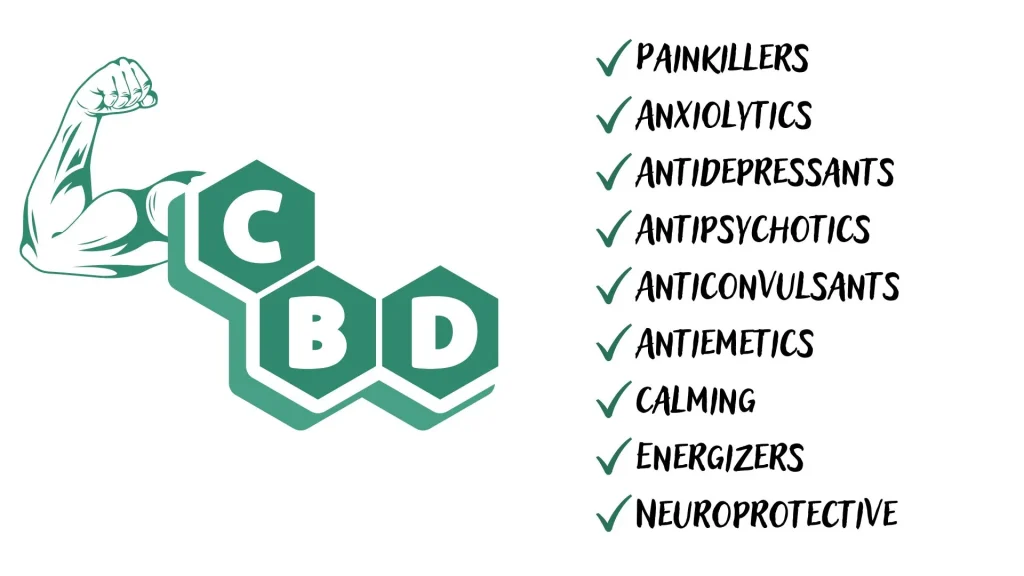
Potential CBD applications
CBD is emerging as a promising ally in the treatment of various medical conditions, thanks to its therapeutic properties that make it useful in multiple areas. Here are some of CBD’s main potential applications:
- Epilepsy treatment: CBD has been shown to be effective in treating drug-resistant forms of epilepsy, such as Lennox-Gastaut syndrome and Dravet syndrome.
- Treatment of anxiety, mental disorders, and sleep: CBD has anxiolytic effects that can help reduce anxiety, improve sleep, and manage some mental disorders.
- Reduction of chemotherapy-related nausea and vomiting: CBD is known for its anti-nausea effect and may be useful in reducing the side effects of chemotherapy.
- Antispasmodic and analgesic agent for multiple sclerosis: CBD can relieve symptoms of multiple sclerosis, such as muscle spasms and chronic pain.
- Diabetes symptom relief: CBD may play a role in improving the management of diabetes-related symptoms, such as insulin resistance.
- Neuroprotective action for Parkinson’s and Alzheimer’s: Its neuroprotective properties may support patients with neurodegenerative diseases such as Parkinson’s and Alzheimer’s.
- Autism Spectrum Disorder: CBD may help reduce anxiety, aggression, repetitive behaviors, improve sociability, and reduce hyperactivity in children with autism.
- Reduction of arterial stiffness and cardiovascular disease: CBD has effects that may contribute to the reduction of arterial stiffness, thus helping to prevent or manage cardiovascular disease.
CBD side effects
Does CBD have only beneficial properties, or can it also cause side effects? According to the World Health Organization (WHO) and scientific research, CBD is a safe substance. It does not cause any significant side effects in humans, is not addictive, and is nontoxic.
In some cases, only mild side effects have been reported, but nothing serious. The most common side effects reported include:
- feeling dizzy or anxious
- diarrhea
- dry mouth
- headache
- drowsiness
- decreased appetite
- mild mood changes
The type and intensity of side effects that may occur vary from person to person. But the most important aspect is that no serious or permanent effects have ever been observed.
Adverse reactions may occur in specific cases, so it’s always best to seek advice and support from your doctor, especially if you’re also taking other medications that may be incompatible with CBD.
CBD is a safe natural remedy compared to THC, which was the first to attract scientific interest for the treatment of more or less serious conditions. Only later did research discover that CBD was much safer, possessing the same properties but not altering patients’ mental faculties.
Furthermore, CBD is safer than many traditional medications because it doesn’t affect the body while trying to treat a condition and, more importantly, it doesn’t create addiction.
CBD dosage
CBD dosing is highly subjective and varies from person to person, influenced by various factors such as body weight, age, metabolism, individual sensitivity, the condition being treated, and the concentration of the product used.
There is no standard dose that works for everyone, which is why it is essential to proceed with caution. It is recommended to start with a low dose, such as 5-10 mg per day, and carefully monitor the effects on your body.
Then, you can gradually increase the dosage, if necessary, until you find the ideal amount that provides the desired benefits without side effects. This gradual approach allows you to personalize your CBD use safely and effectively.
CBD Oil Dosage Calculator
How CBD interacts with the body
The question scientists have been trying to answer is: how is it possible for CBD to provide all these benefits?
Cannabis has been studied for many decades, but it was only recently that scientists discovered the existence of cannabinoid receptors within the mammalian brain. It was in 1992 that researchers discovered the existence of the endocannabinoid system.
The endocannabinoid system is an important biological system found within the central nervous system, including the brain, and in the peripheral nervous system of vertebrates. Its discovery represented a breakthrough in science because this system regulates numerous physiological and cognitive processes. It is involved in the regulation of mood, sleep, appetite, the immune system, fertility, pain, and memory.
The system already produces chemicals with a composition similar to cannabinoids; these are called endocannabinoids. These regulate the processes listed above. However, when present in low quantities, they fail to regulate them as they should, causing disorders.
Researchers have discovered that cannabinoids can rebalance vital functions precisely because they have a similar chemical composition and because they bind to two primary receptors: CB1 and CB2.
CBD and THC bind to these receptors in the body, stimulating a response to pain, inflammation, mood, thought, movement, and many other functions.
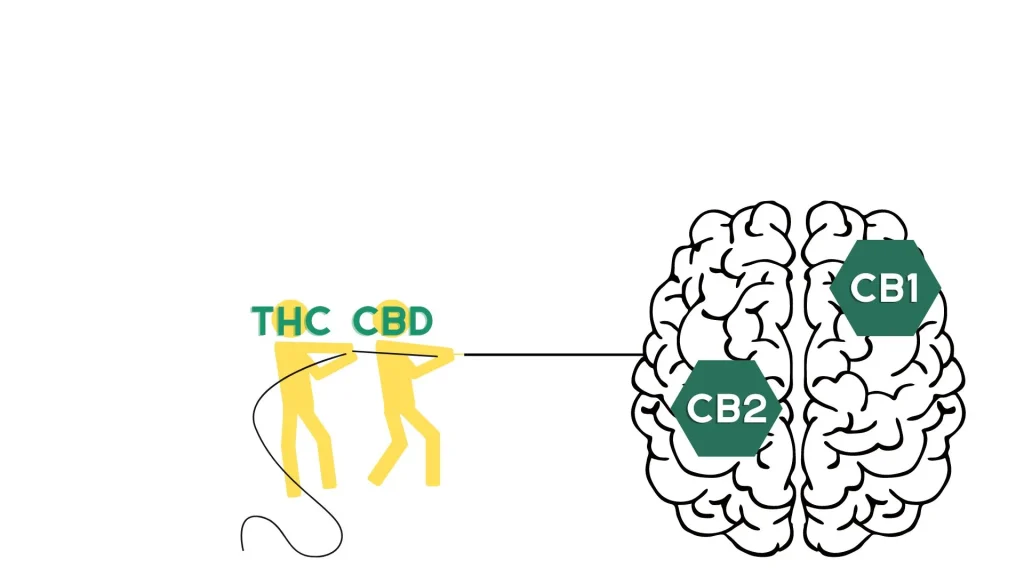
In this sense, CBD can be considered a revolutionary remedy compared to traditional treatments. It doesn’t simply eliminate a single symptom, as many other lab-created drugs do, but rebalances physiological and cognitive processes by addressing the root cause of the problem and integrating those substances that the body cannot produce on its own in the right amounts to maintain health.
Is CBD legal?
Legal CBD is a substance that, according to the World Health Organization (WHO), is considered safe for human health, with no significant psychoactive effects.
In fact, its use is generally associated with benefits such as stress relief and the alleviation of certain disorders, such as anxiety and insomnia.
To be legal, the THC content, the psychoactive compound in cannabis, must be less than 0.2%, ensuring the absence of psychotropic effects.
However, it is important to note that legislation regarding CBD and cannabis is constantly evolving, and regulations may vary depending on the country and local jurisdiction.
How long does CBD stay in urine?
How long does CBD last in urine? It can last from 3 days to 2 weeks after ingestion, depending on factors such as frequency of use, dose, and individual metabolism.
Because it is a legal substance, taking CBD does not constitute a civil or criminal offense unless it contains high levels of THC, which could make it illegal.
To ensure safety and regulatory compliance, it is important to purchase products certified by the European Union, which ensure that the THC content does not exceed the permitted limit (0.2%).
This way, you can be sure you are using legal and safe products.
Discover our CBD products
Maria CBD Oil is proud to offer a wide range of CBD products, designed to meet your daily wellness needs.
The products in our CBD shop come from the European Union and are produced with EU-certified industrial hemp strains. Our CBD is extracted in various European countries, including Germany, Austria, Slovenia, and Croatia, depending on the type of product ordered.
For our products made using international isolates, the hemp is grown in Colorado (USA) and then extracted using the supercritical CO2 extraction method, followed by chromatographic isolation.
Each product is therefore formulated with high-quality CBD from legal and controlled farms, to guarantee the best results in complete safety. Explore our selection and find the perfect product for you:
- CBD Oil: The most popular and appreciated product among consumers. Ideal for direct and versatile administration, CBD oil is perfect for those seeking a rapid and targeted effect.
-
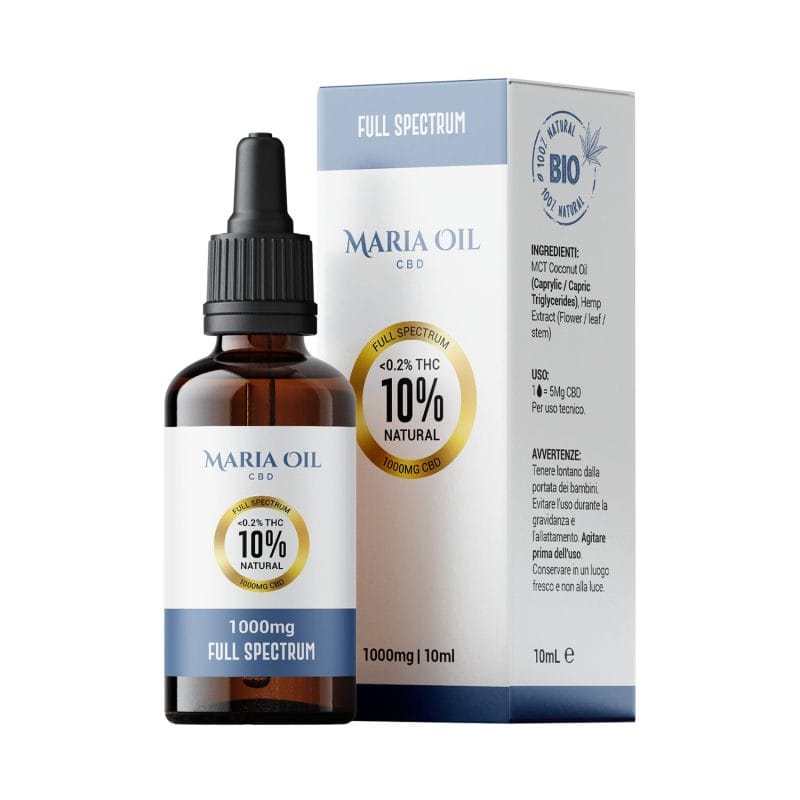 CBD Oil 10% (1000mg) Full SpectrumPrice range: £29.00 through £54.00From 1,80 €/gr
CBD Oil 10% (1000mg) Full SpectrumPrice range: £29.00 through £54.00From 1,80 €/gr -
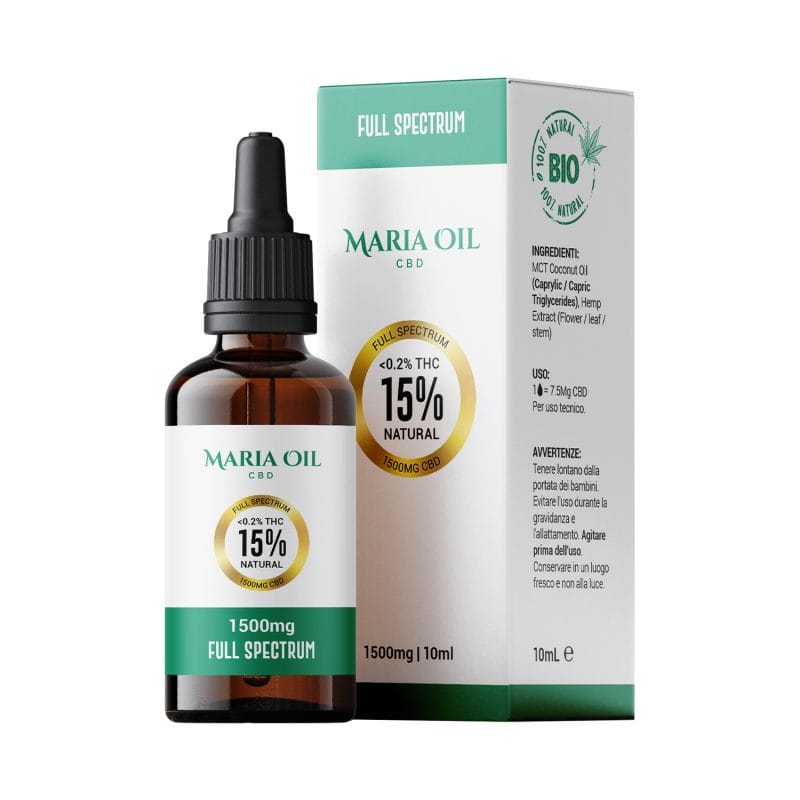 CBD Oil 15% (1500mg) Full SpectrumPrice range: £39.00 through £64.00From 2,13 €/gr
CBD Oil 15% (1500mg) Full SpectrumPrice range: £39.00 through £64.00From 2,13 €/gr -
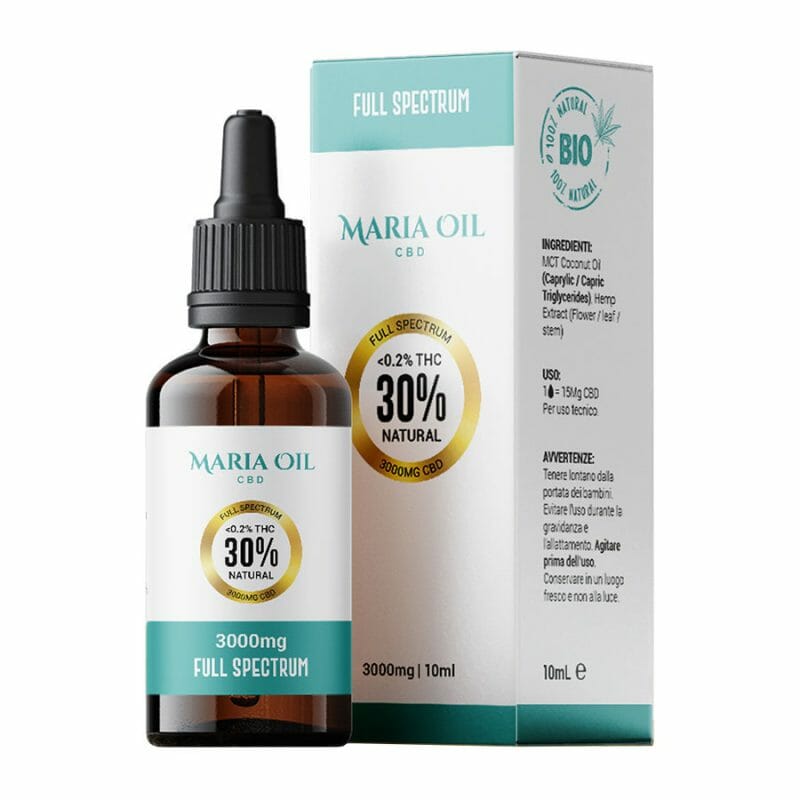 CBD Oil 30% (3000mg) Full SpectrumPrice range: £69.00 through £94.00From 3,13 €/gr
CBD Oil 30% (3000mg) Full SpectrumPrice range: £69.00 through £94.00From 3,13 €/gr
- CBD Capsules: Easy to take, ideal for those who prefer a precise and discreet dose.
-
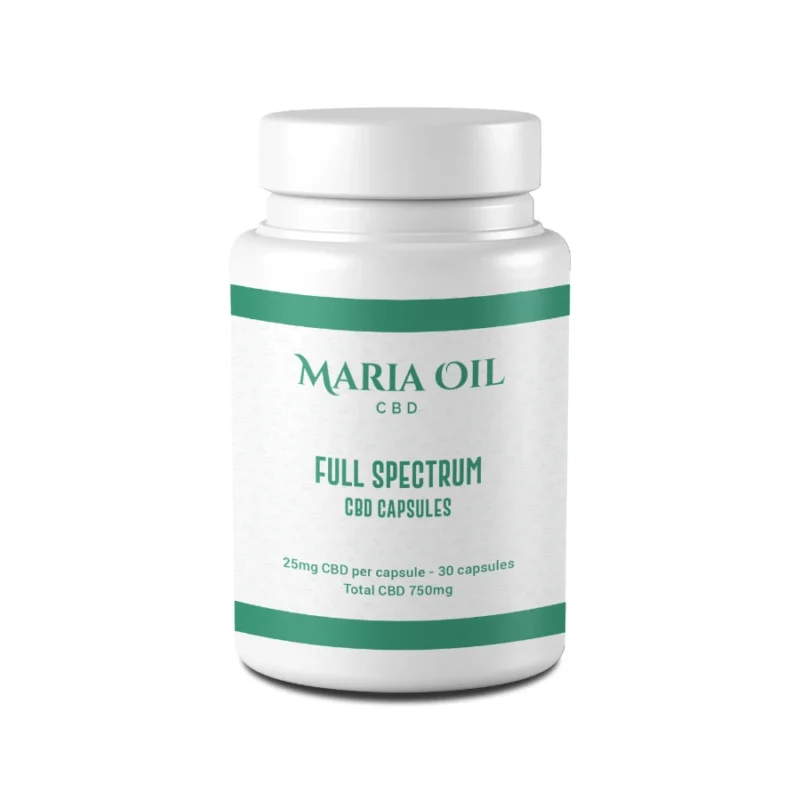 Capsule CBD 25mg£29.90
Capsule CBD 25mg£29.90 -
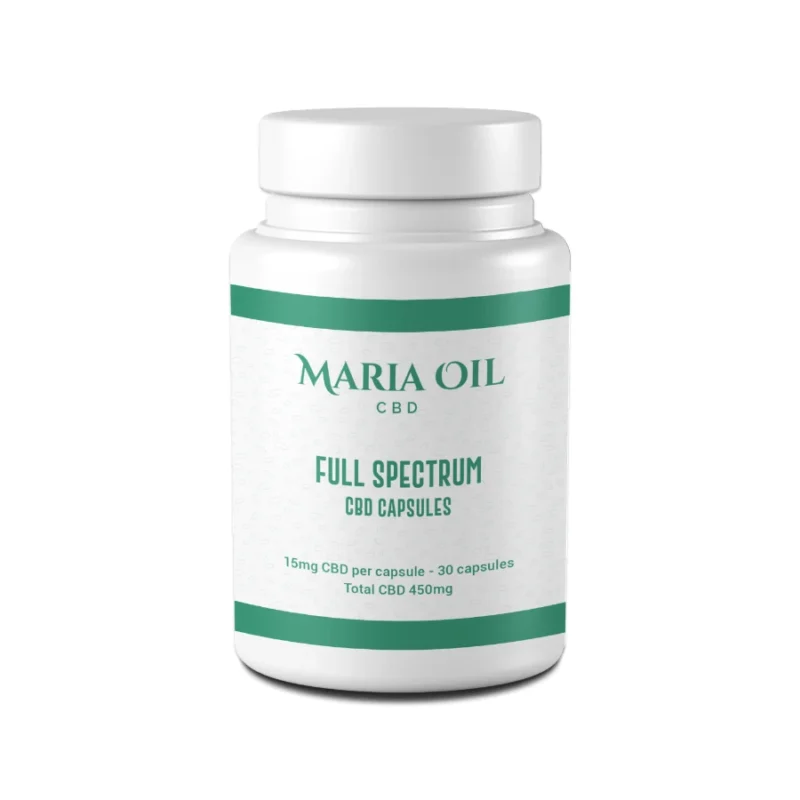 CBD Capsules 15mg (450mg)£19.90
CBD Capsules 15mg (450mg)£19.90
- Legal weed: A selection of legal cannabis flowers, with a low THC content, perfect for those looking for a relaxing experience without psychoactive effects.
-
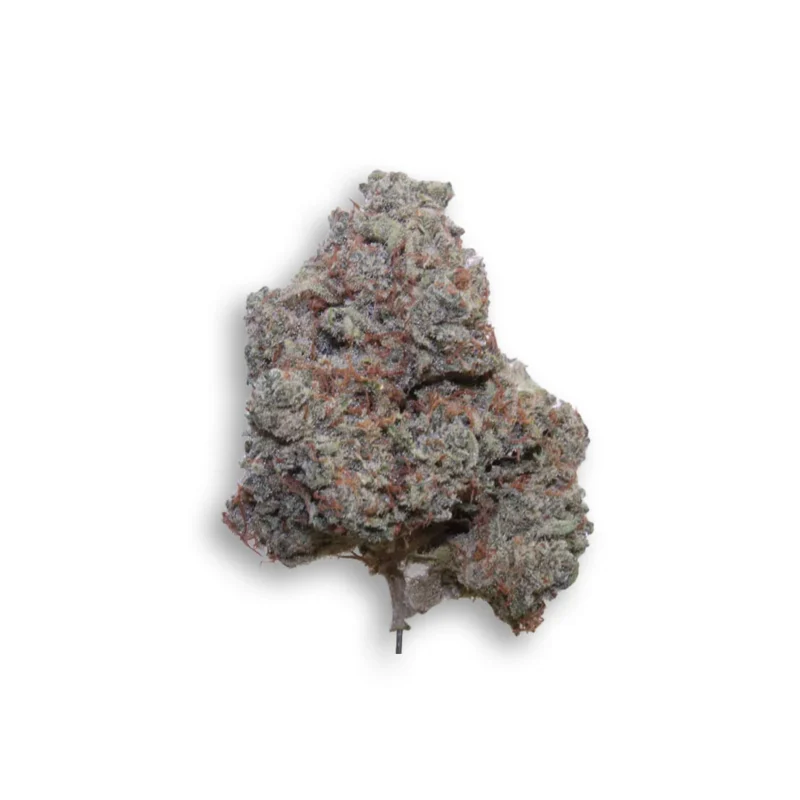 Gelato #41Price range: £3.50 through £350.00From 0,88 €/gr
Gelato #41Price range: £3.50 through £350.00From 0,88 €/gr -
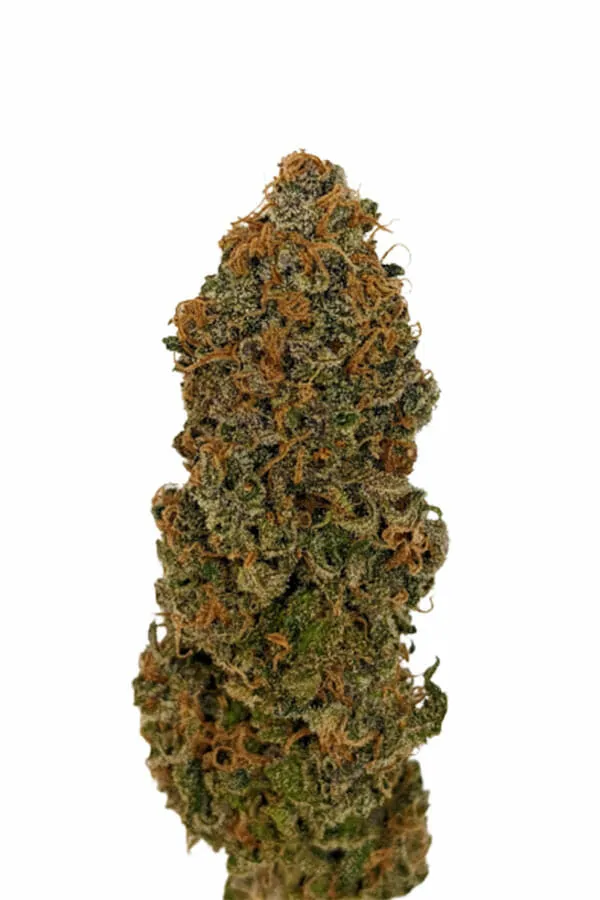 Purple HazePrice range: £3.50 through £350.00From 3,50 €/gr
Purple HazePrice range: £3.50 through £350.00From 3,50 €/gr -
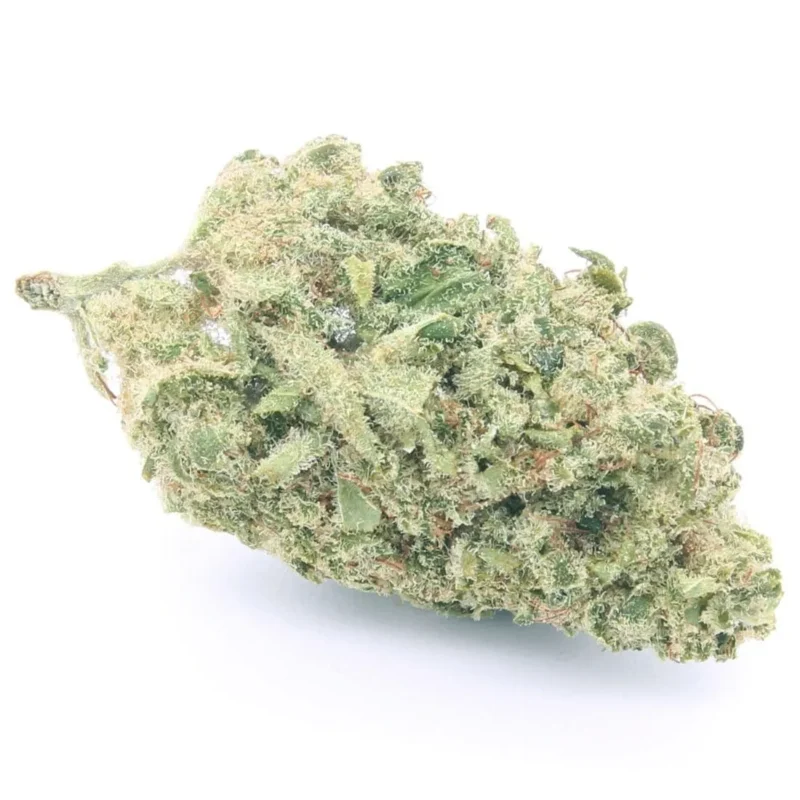 White WidowPrice range: £3.50 through £340.00From 0,88 €/gr
White WidowPrice range: £3.50 through £340.00From 0,88 €/gr
- Legal Hashish: A concentrated product, rich in CBD, that offers all the benefits of cannabis without the side effects.
-
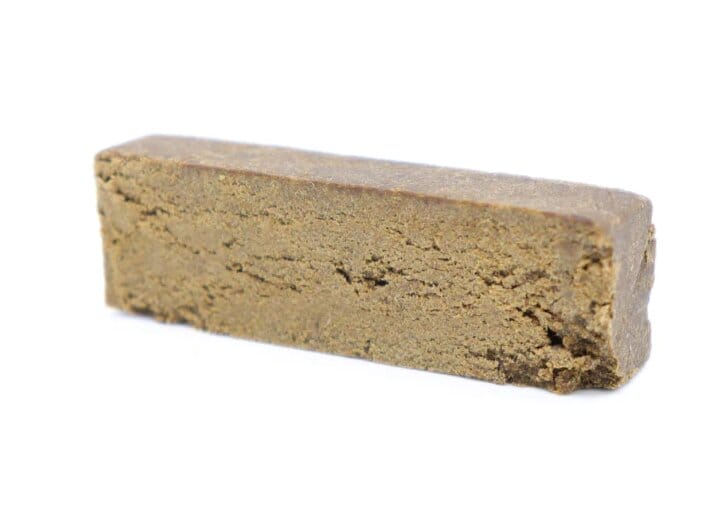 00Price range: £8.50 through £249.00From 2,49 €/gr
00Price range: £8.50 through £249.00From 2,49 €/gr -
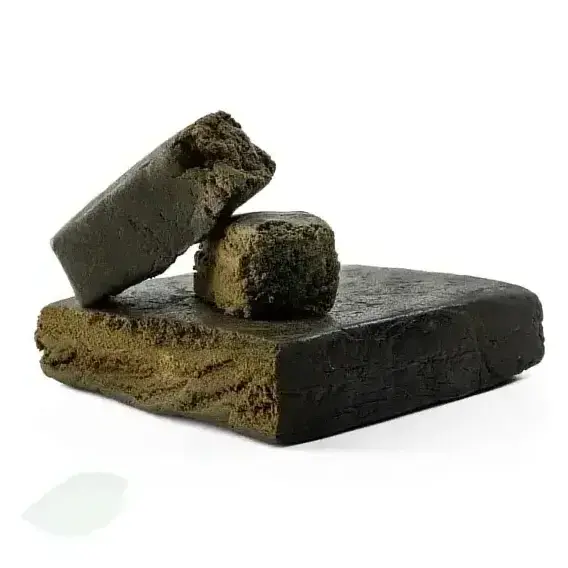 Bengal CharasPrice range: £10.00 through £499.00From 4,99 €/gr
Bengal CharasPrice range: £10.00 through £499.00From 4,99 €/gr -
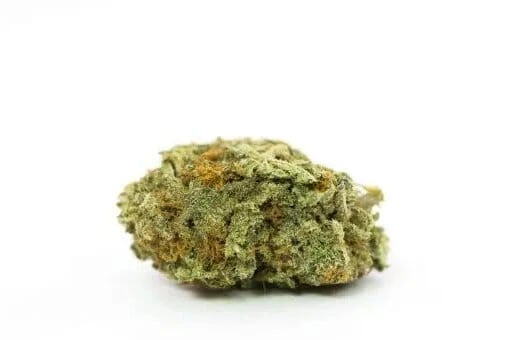 Cookies KushPrice range: £3.50 through £300.00From 3,00 €/gr
Cookies KushPrice range: £3.50 through £300.00From 3,00 €/gr
- CBD Extracts: More powerful solutions for those seeking an intense and long-lasting effect, available in various concentrations.
-
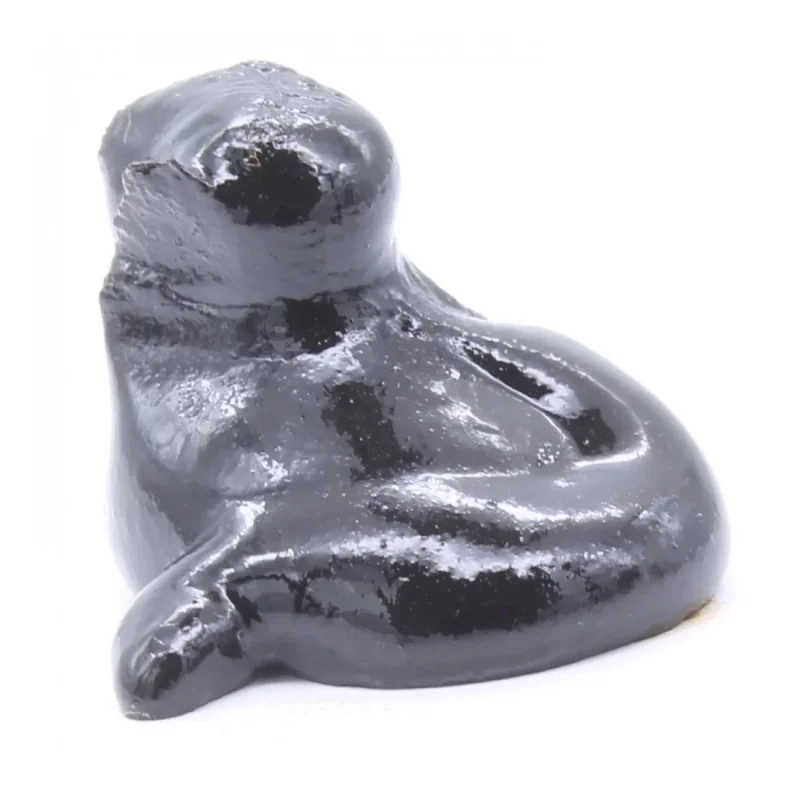 Black WAXPrice range: £8.00 through £189.00From 3,78 €/gr
Black WAXPrice range: £8.00 through £189.00From 3,78 €/gr -
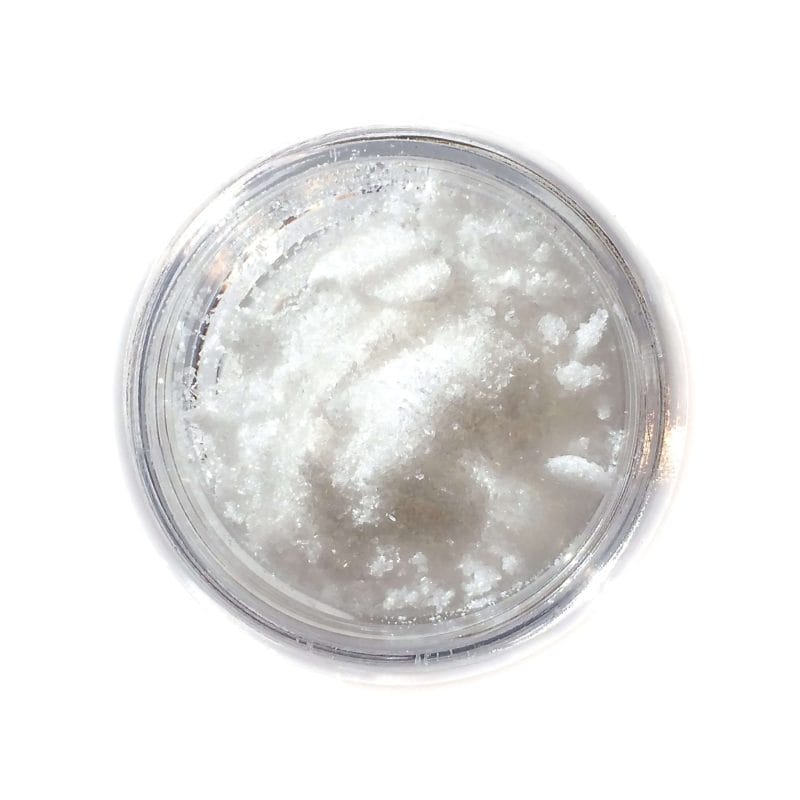 CBD 99% CrystalsPrice range: £8.00 through £189.00From 3,78 €/gr
CBD 99% CrystalsPrice range: £8.00 through £189.00From 3,78 €/gr -
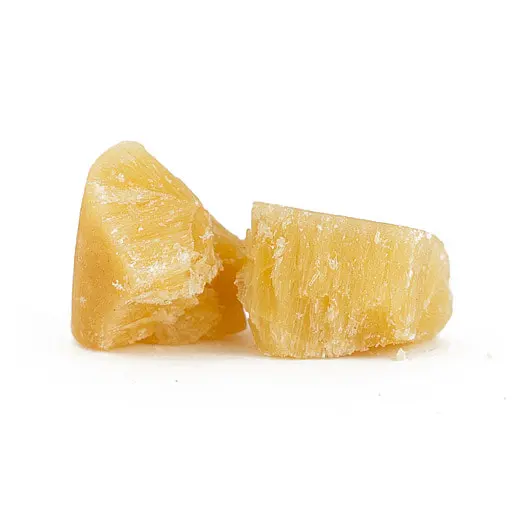 Crumble | Legal HashishPrice range: £8.00 through £189.00From 3,78 €/gr
Crumble | Legal HashishPrice range: £8.00 through £189.00From 3,78 €/gr
- CBD for Pets: Specific products to improve the well-being of your four-legged friends, with benefits for anxiety, joint pain, and other ailments.
-
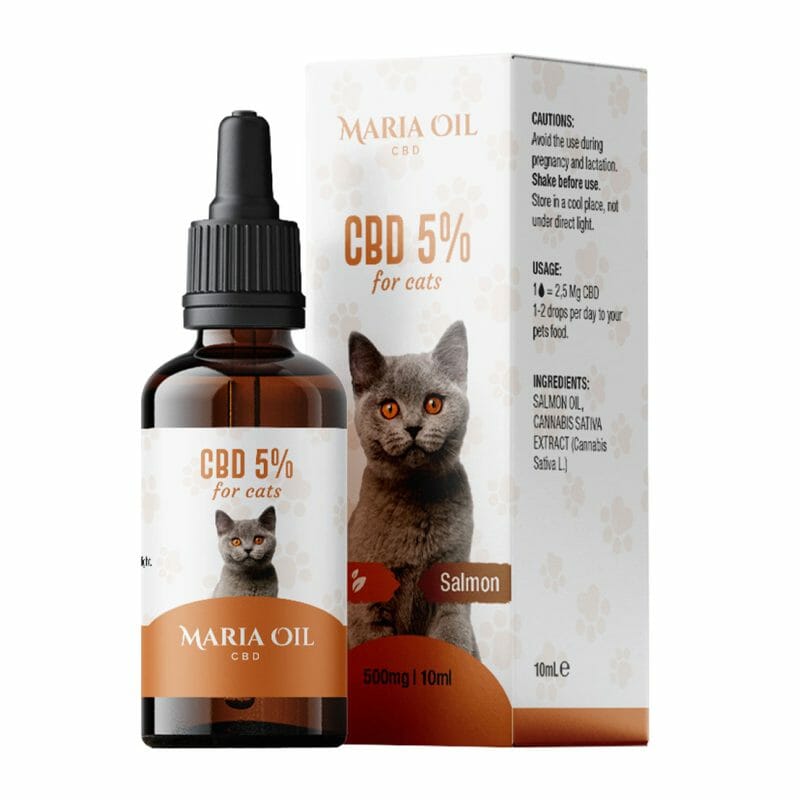 CBD Oil 5% for Cats£19.99
CBD Oil 5% for Cats£19.99 -
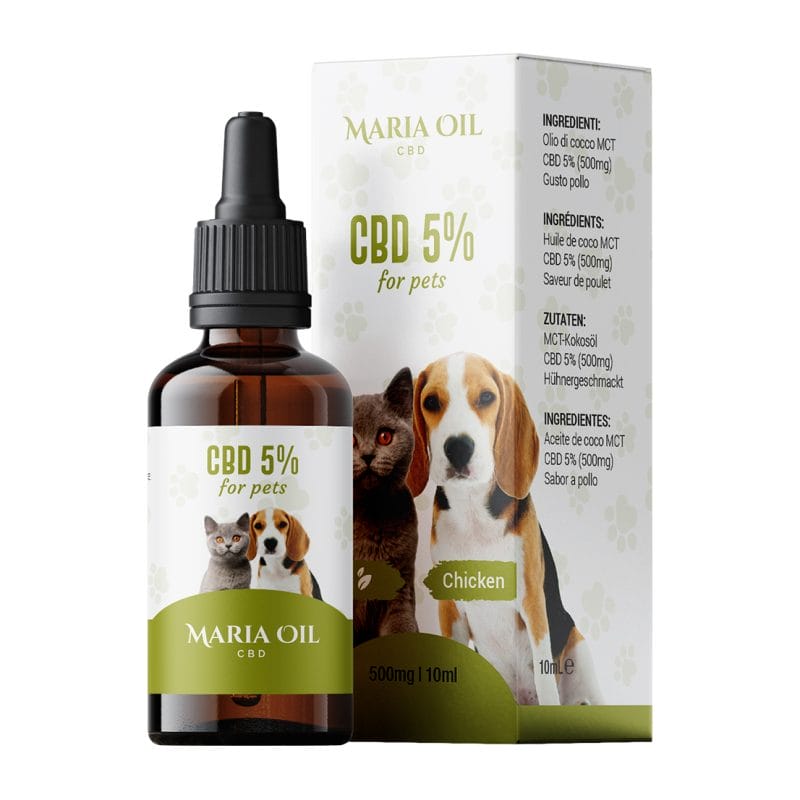 CBD Oil 5% for Pets£19.90
CBD Oil 5% for Pets£19.90
- CBD Cosmetics: Creams, conditioners, and other skin and hair care products that harness the soothing and hydrating properties of CBD.
-
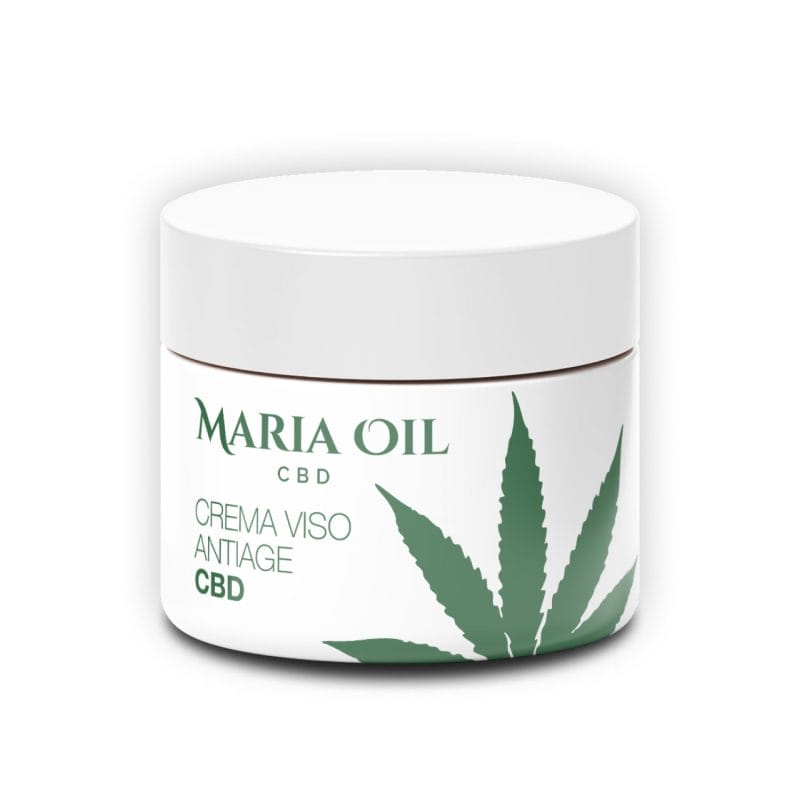 CBD Anti Ageing Face Cream£31.00
CBD Anti Ageing Face Cream£31.00 -
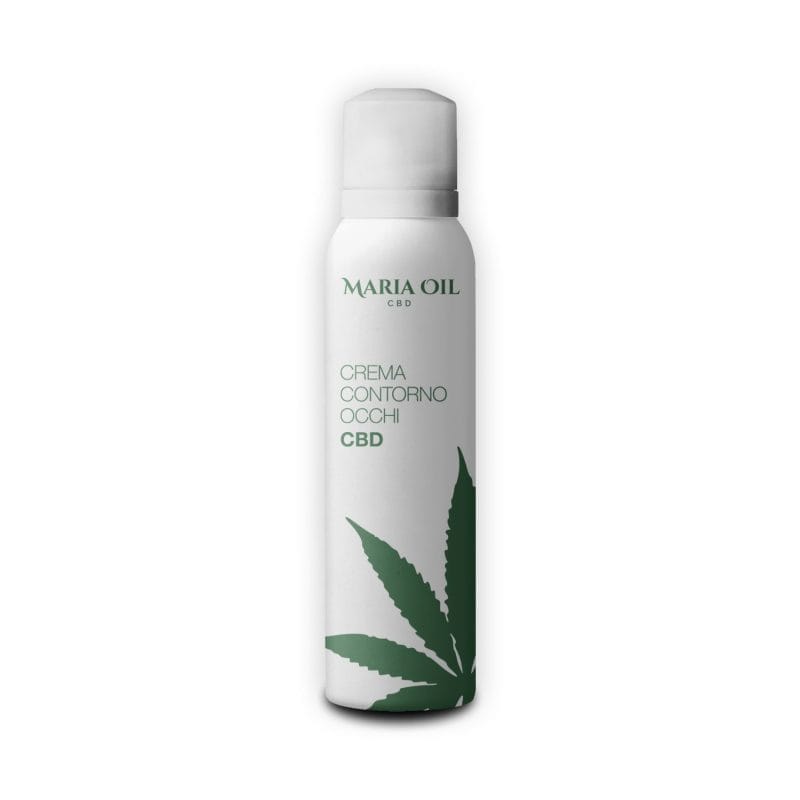 CBD Eye Cream£11.00
CBD Eye Cream£11.00
- CBD Gummies and Teas: A tasty and relaxing way to incorporate CBD into your daily routine.
-
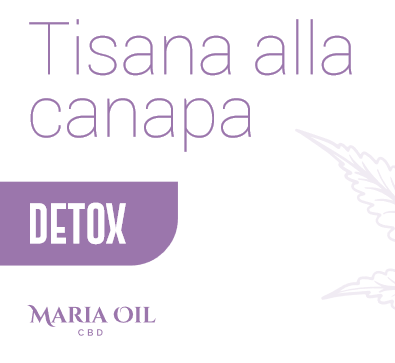 CBD Detox Herbal Tea£12.99
CBD Detox Herbal Tea£12.99 -
 CBD herbal tea for sleep£12.99
CBD herbal tea for sleep£12.99 -
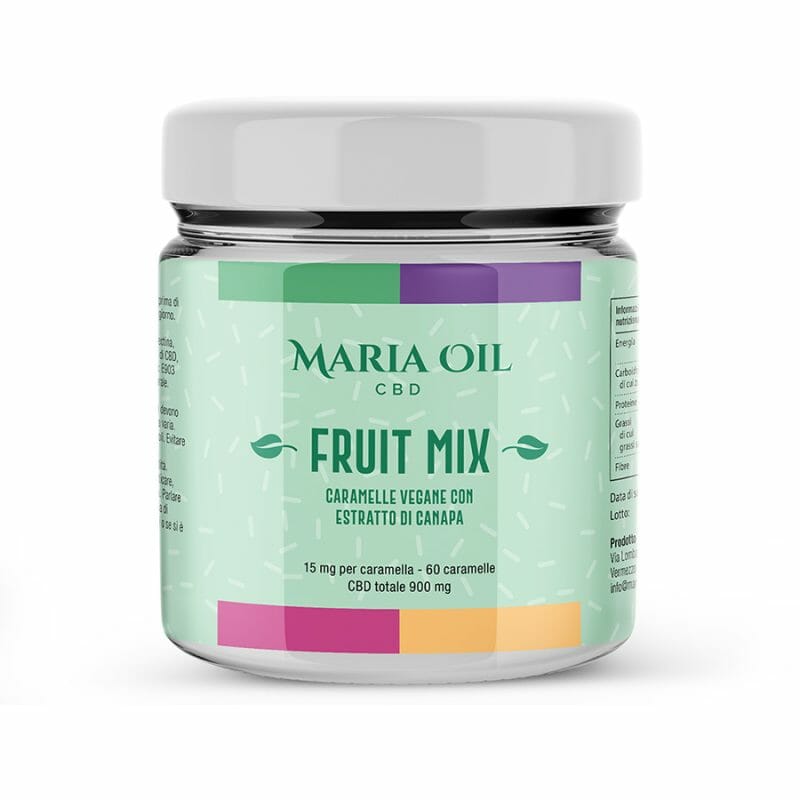 Vegan Gummies with CBD 15mg£25.00
Vegan Gummies with CBD 15mg£25.00
- CBD vaping and puffing: Practical and modern solutions for those who love using CBD in vaporized form, with varied and satisfying flavors.
-
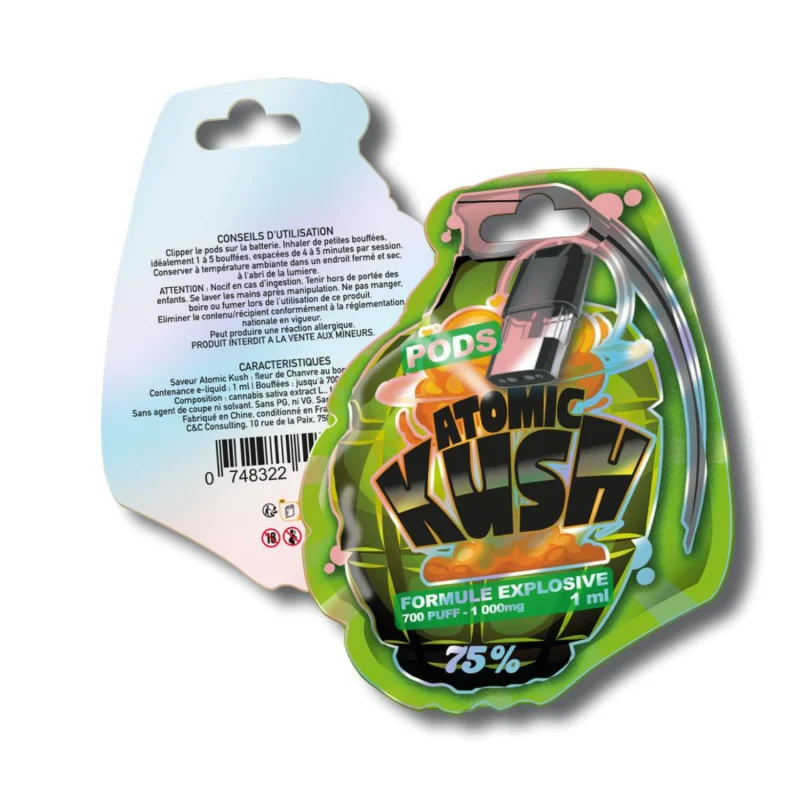 Atomic Kush Pod | CBD Vapes£14.00
Atomic Kush Pod | CBD Vapes£14.00 -
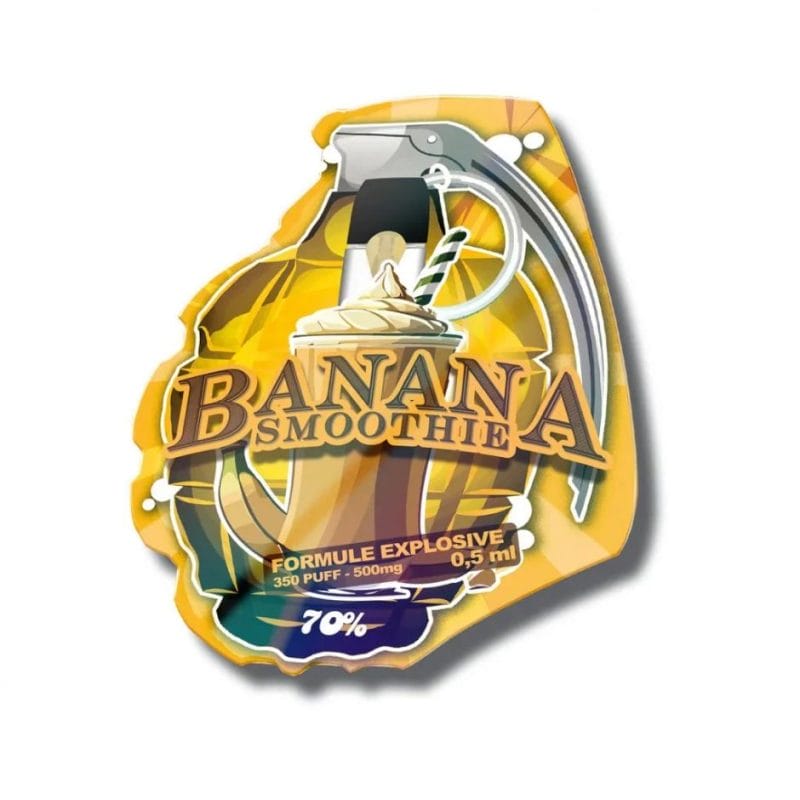 Banana Smoothie | CBD Vape Pen£19.00
Banana Smoothie | CBD Vape Pen£19.00
Scopri subito i prodotti di Maria CBD Oil, sicuri per la legge e per la tua salute!
 Contact us
Contact us 





